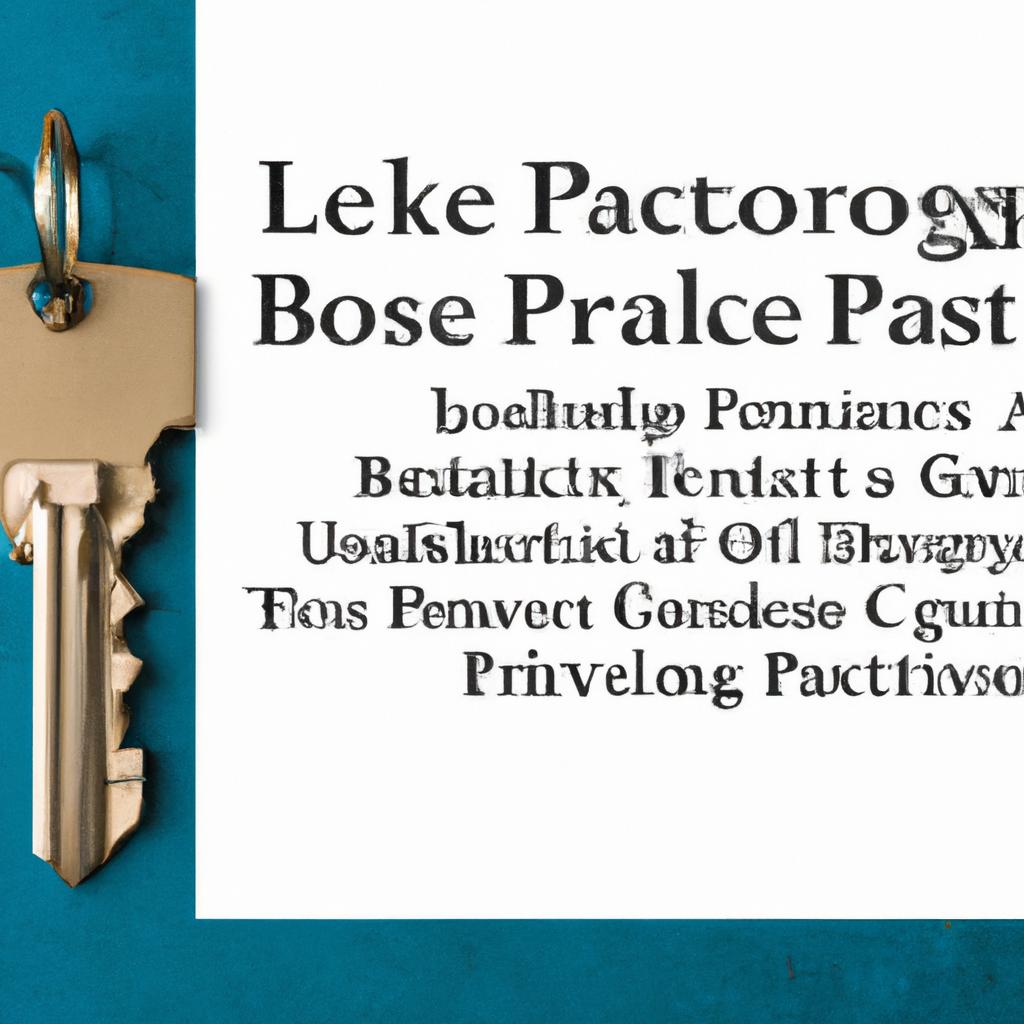When it comes to planning your estate, the probate process is often a major concern for many individuals. However, there is another aspect of estate planning that is often underestimated – the non probate estate. This often overlooked element of the legal world can have a significant impact on your assets and beneficiaries, so it’s crucial to understand how it functions and how it fits into your overall estate plan. Let’s delve into the world of non probate estate and explore its implications for your future financial legacy.
The Significance of Non Probate Assets
Non probate assets are assets that do not go through the probate process when the owner passes away. These assets typically pass directly to designated beneficiaries, outside of the probate court. It is essential to understand the nature of non probate assets to ensure they are handled correctly.
Some common examples of non probate assets include:
- Jointly owned property
- Retirement accounts with designated beneficiaries
- Life insurance policies with named beneficiaries
- Payable-on-death (POD) bank accounts
One major benefit of non probate assets is that they allow for a more streamlined transfer of assets to beneficiaries. By designating beneficiaries directly, these assets can bypass the lengthy and costly probate process, providing a quicker distribution of assets.
| Probate Assets | Non Probate Assets |
|---|---|
| Subject to probate court process | Pass directly to beneficiaries |
| Can take months to distribute | Quick distribution to beneficiaries |
Understanding Key Characteristics of Non Probate Estate
Non probate estates refer to assets that do not go through the probate process when the owner passes away. Some key characteristics include:
- Direct beneficiaries: Non probate assets typically have designated beneficiaries who will receive the assets upon the owner’s death. These beneficiaries are named in the asset’s documentation, such as life insurance policies, retirement accounts, and payable-on-death bank accounts.
- Avoidance of probate: Non probate assets bypass the probate process, allowing beneficiaries to receive their inheritance more quickly and without the intervention of the court.
- Privacy: Since non probate assets do not go through probate, the transfer of these assets remains private, which can be beneficial for individuals who wish to keep their estate matters confidential.
| Assets | Beneficiaries |
|---|---|
| Life insurance policies | Named beneficiaries |
| Retirement accounts | Designated beneficiaries |
Strategies for Transferring Non Probate Assets
When it comes to transferring non probate assets, it’s important to have a plan in place to ensure a smooth transition of assets to beneficiaries. Here are some effective strategies to consider:
- Joint Ownership: One common strategy is to hold assets jointly with someone else, such as a spouse or family member. This ensures that the asset passes directly to the joint owner upon death, bypassing probate.
- Transfer on Death Designations: Another strategy is to designate beneficiaries on assets such as bank accounts, retirement accounts, and life insurance policies, allowing these assets to transfer directly to the named beneficiaries without going through probate.
- Living Trusts: Creating a living trust can be a useful strategy for transferring non probate assets. By transferring assets into the trust during your lifetime, you can ensure that they pass to your beneficiaries without the need for probate.
| Asset | Beneficiary |
|---|---|
| Bank Account | Spouse |
| Retirement Account | Children |
| Life Insurance Policy | Grandchildren |
By utilizing these strategies, you can ensure that your assets are passed on to your loved ones in a timely and efficient manner.
Maximizing the Benefits of Non Probate Estate
When it comes to estate planning, maximizing the benefits of a non probate estate can be key in ensuring a smooth and efficient transfer of assets to beneficiaries. One of the main advantages of a non probate estate is that it allows for assets to pass directly to beneficiaries without the need for court supervision, expediting the transfer process and minimizing costs associated with probate proceedings.
Some tips on how to maximize the benefits of a non probate estate include:
- Review and update beneficiary designations regularly.
- Utilize trusts to pass on assets outside of probate.
- Consider joint ownership of property with rights of survivorship.
- Consult with an estate planning attorney to ensure your estate plan is comprehensive and up to date.
In Conclusion
Understanding the basics of non-probate estate can provide peace of mind and clarity for individuals navigating the complex world of estate planning. By properly designating assets outside of probate, you can ensure a smoother transfer of wealth to your loved ones. Whether you’re considering setting up a trust, naming beneficiaries, or exploring other options, remember that knowledge and preparation are key when it comes to protecting your assets and securing your legacy. Here’s to a future where your estate is handled with ease and efficiency.

Unlock the Benefits of Non-Probate Estate Planning
What is Non-Probate Estate Planning?
Non-probate estate planning refers to the process of arranging your assets and property in a way that allows them to pass directly to your beneficiaries upon your death, without the need for probate court involvement. This can help streamline the distribution of your assets, minimize taxes, and ensure your wishes are carried out efficiently.
Benefits of Non-Probate Estate Planning
- Speedy asset distribution: Assets can be transferred to beneficiaries without delays associated with probate proceedings.
- Privacy: Non-probate assets are not part of the public court record, offering more confidentiality for your estate.
- Cost savings: By avoiding probate, you can reduce legal fees and other costs associated with the court process.
- Control: Non-probate planning allows you to specify how your assets are distributed and to whom.
Practical Tips for Non-Probate Planning
When considering non-probate estate planning, here are some practical tips to keep in mind:
- Identify non-probate assets: Make a list of assets that can pass directly to beneficiaries, such as life insurance policies, retirement accounts, and joint accounts.
- Update beneficiary designations: Ensure that your beneficiary designations are up to date and reflect your current wishes.
- Create a trust: Establishing a trust can help avoid probate and provide added flexibility in asset distribution.
Case Studies
Let’s take a look at some real-life scenarios where non-probate estate planning made a difference:
| Name | Age | Assets | Beneficiaries |
|---|---|---|---|
| John Smith | 55 | $500,000 in life insurance | Spouse and children |
| Sarah Johnson | 70 | $1 million in retirement accounts | Grandchildren |
Firsthand Experience
Many individuals have found non-probate estate planning to be a valuable tool in ensuring their assets are distributed according to their wishes. By taking the time to plan ahead and utilize strategies such as trusts and beneficiary designations, you can protect your legacy and provide for your loved ones.
non-probate estate planning offers numerous benefits that can help simplify the distribution of your assets and provide peace of mind for you and your beneficiaries. By understanding the process and implementing effective strategies, you can unlock the advantages of non-probate planning and secure your financial legacy.


